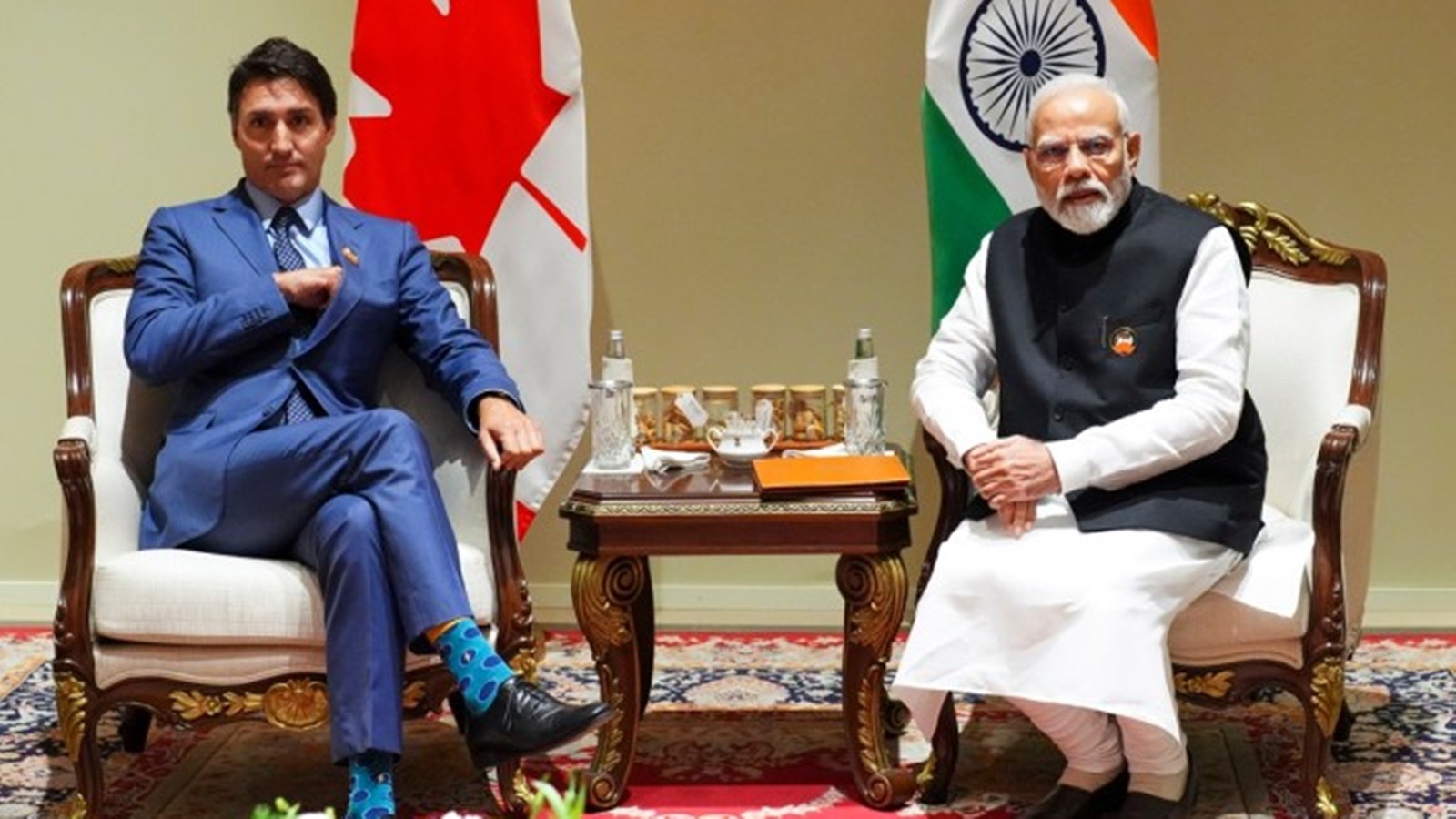Stay updated with the latest - Click here to follow us on Instagram
Amid diplomatic row, Canada names India in ‘cyberthreat adversary’ list, accuses it of ‘likely spying’
India ranks fifth in the report titled 'National Cyber Threat Assessment 2025-2026', following China, Russia, Iran, and North Korea.
 The report asserts that bilateral relations between Canada and India will “very likely” influence Indian state-sponsored cyber activities against Canada. (FILE PHOTO/AP)
The report asserts that bilateral relations between Canada and India will “very likely” influence Indian state-sponsored cyber activities against Canada. (FILE PHOTO/AP)Amidst the ongoing diplomatic tensions between India and Canada, the Justin Trudeau government has named India in a list of cyberthreat adversaries, while also suggesting that state-sponsored actors could be spying against it.
In its latest report titled ‘National Cyber Threat Assessment 2025-2026’, the government of Canada indicated that state-sponsored actors from India may be involved in espionage activities against it. Amid the ongoing diplomatic disputes, India ranks fifth in the report, following China, Russia, Iran, and North Korea.
“We assess that Indian state-sponsored cyber threat actors likely conduct cyber threat activity against Government of Canada networks for the purpose of espionage,” the report states.
This development follows a period of strained relations since Trudeau alleged that Canada had credible evidence implicating Indian government agents in the murder of pro-Khalistan separatist Hardeep Singh Nijjar in British Columbia, Surrey in June 2023 — an accusation New Delhi has strongly denied as baseless.
Released on October 30 by the Canadian Centre for Cyber Security (Cyber Centre), part of the Communications Security Establishment Canada (CSE), the NCTA 2025-2026 highlights threats facing Canadian individuals and organisations. While previous National Cyber Threat Assessments in 2018, 2020, and 2023-24 omitted mention of India, the 2025-26 report includes India alongside China, Russia, Iran, and North Korea in the ‘Cyber Threat from State Adversaries’ section, addressing the state-sponsored cyber threat landscape in Canada.
The report states, “India’s leadership almost certainly aspires to build a modernised cyber programme with domestic capabilities, very likely using it to advance national security, including espionage, counterterrorism, and efforts to elevate its global status and counter narratives against India and the Indian government.”
The assessment further claims that India’s cyber programme likely utilises commercial vendors to strengthen its operations. It asserts that bilateral relations between Canada and India will “very likely” influence Indian state-sponsored cyber activities against Canada.
According to the CSE, it and its partners within Canada and the Five Eyes alliance are actively monitoring cyber threats from both state and non-state actors, adapting to their evolving tactics. The NCTA 2025-2026 offers Canadians the CSE’s perspective on current and emerging cyber threats, detailing how the landscape may shift over the next two years.
The report also comes amidst heightened tensions between the two countries as days earlier, Prime Minister Justin Trudeau’s National Security and Intelligence Adviser Nathalie Drouin and Deputy Foreign Affairs Minister David Morrison acknowledged leaking information to The Washington Post which first reported that India’s Union Home Minister Amit Shah was behind the campaign of targeting Khalistan separatists in Canada.
With PTI inputs
- 01
- 02
- 03
- 04
- 05































